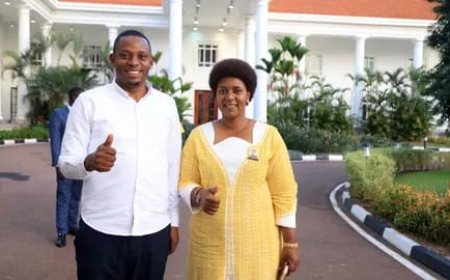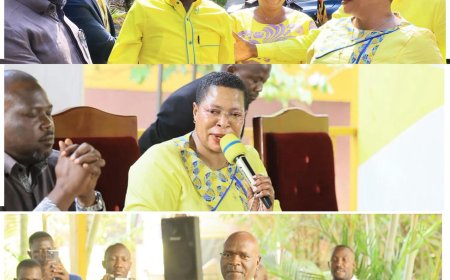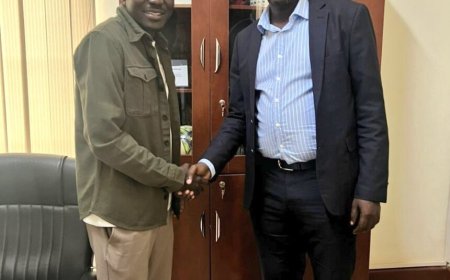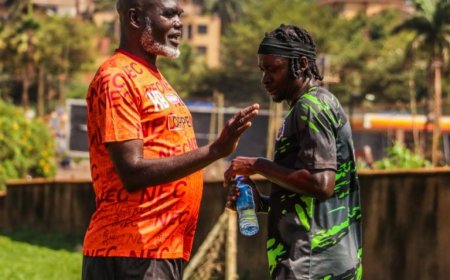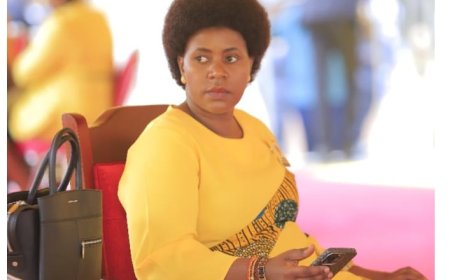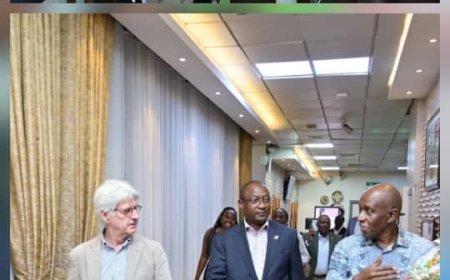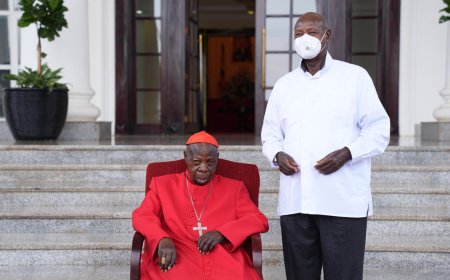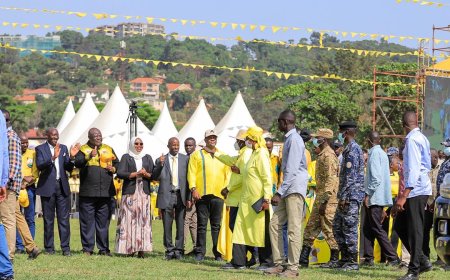President Museveni Urges Focus on Infrastructure and Wealth Creation to Drive Uganda’s Economic Transformation
Addressing thousands of supporters during a campaign rally at Pajule Primary School in Pader District, the President underscored the importance of focusing government resources on critical sectors such as roads, electricity, water, health, and education, which he described as the foundation of sustainable national progress.
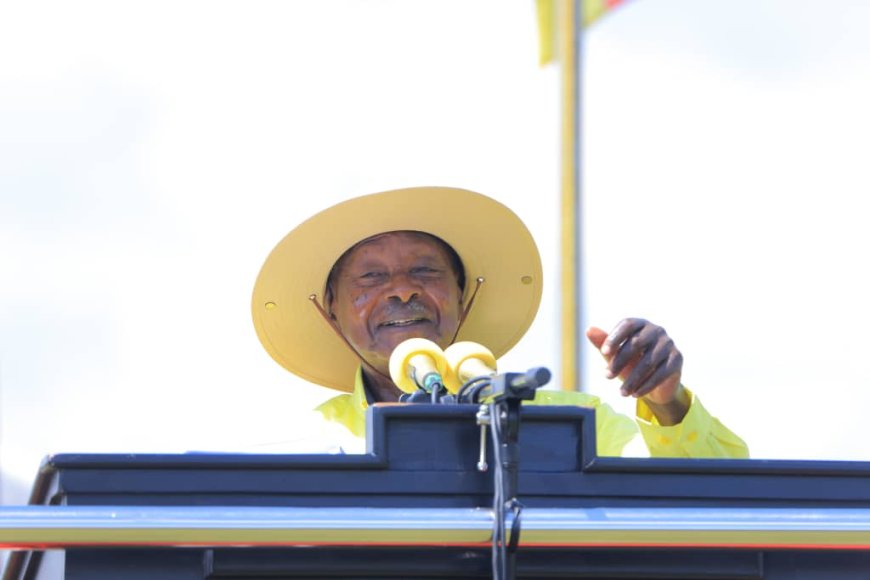
PADER, Uganda — President Yoweri Kaguta Museveni has called on leaders across the country to prioritize the development of key infrastructure projects before pursuing other government programmes, emphasizing that infrastructure is the backbone of Uganda’s economic growth and transformation.
Addressing thousands of supporters during a campaign rally at Pajule Primary School in Pader District, the President underscored the importance of focusing government resources on critical sectors such as roads, electricity, water, health, and education, which he described as the foundation of sustainable national progress.
“Before we talk about other things, let’s first ensure that we have the essentials — defense, health, roads, and education. Once we strengthen these, other programmes can follow,” Museveni said.
The President, who is also the NRM presidential candidate, reminded both leaders and citizens about the need for discipline and prioritization when implementing development programmes. Drawing from his experiences during the liberation struggles of the 1970s and 1980s, Museveni said that meaningful success requires focus and sacrifice.
“When I was in exile fighting Amin, I had to prioritize the revolution and forget about my family. If you want to achieve anything meaningful, you must prioritize,” he remarked.
Progress in Northern Uganda
President Museveni highlighted the government’s achievements in restoring peace and rebuilding infrastructure in northern Uganda, a region that once suffered the devastating effects of insurgency. He cited significant improvements in road networks, electricity coverage, and access to safe water.
According to the President, Pader District now boasts 871 villages, of which 770 have boreholes, giving 90 percent of residents access to safe and clean water. He also noted Uganda’s impressive communication progress, from only 23,000 telephone lines in 1986 to over 18 million mobile connections today, illustrating the country’s technological advancement under the NRM government.
However, Museveni expressed concern about the poor maintenance of roads in some areas, stressing the importance of keeping drainage systems open to prevent flooding and damage to infrastructure.
On education, he praised the progress in Pader, noting that the district now has nine government secondary schools, six of which offer A-Level, a major improvement from the 1960s when there were only a few secondary schools in the entire Acholi sub-region.
Wealth Creation and the Four-Acre Model
Beyond infrastructure, President Museveni devoted a significant portion of his speech to wealth creation and household income improvement, urging Ugandans to embrace commercial agriculture and adopt modern farming practices that can transform their livelihoods.
He shared inspiring examples of farmers who have successfully transitioned from subsistence to commercial farming, generating significant incomes through efficient land use.
“I met a man who produces 900 litres of milk per day. Even though the price is low, he earns about one million shillings a month — that’s 250 million a year. He has built a modern house and educated his children. That is how families can become prosperous,” Museveni said.
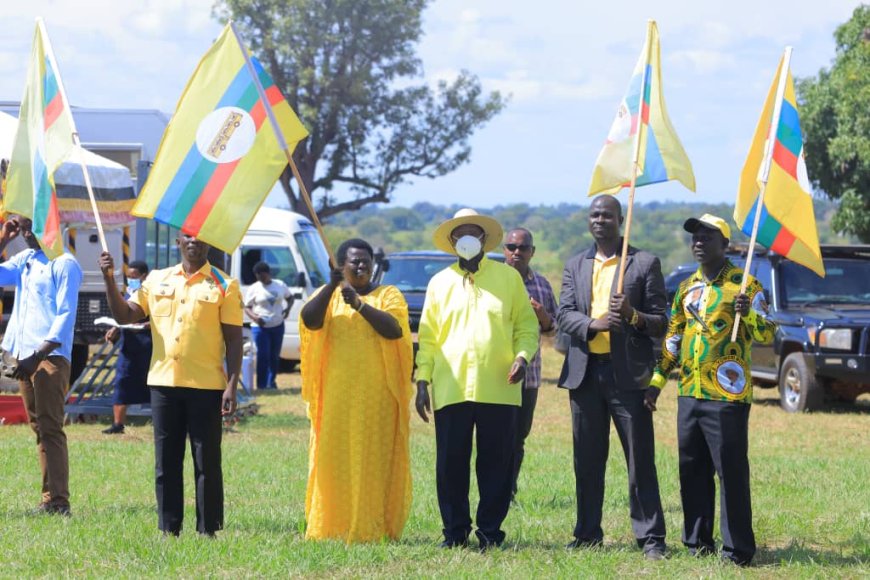
He once again promoted the four-acre model, a concept he has championed across the country to help smallholder farmers maximize productivity on limited land. Under this model:
One acre is reserved for coffee or another cash crop,
One acre for fruits such as bananas and mangoes,
One acre for pasture and zero-grazing dairy cows, and
One acre for food crops or fish ponds.
Museveni said that when well implemented, the four-acre model can enable a household to earn between UGX 70 million and 100 million annually, ensuring both food security and financial stability.
“This approach supports both income and food security. It’s how families can move out of poverty,” he said.
Harnessing Local Resources for Self-Reliance
The President further advised Ugandans to make better use of available natural resources and opportunities while awaiting government support. He encouraged communities to invest in solar energy, livestock farming, and small-scale enterprises as part of their individual efforts to uplift household incomes.
“By the time government support reaches you, you should have already done something for yourself. Use your land well — even four acres can make you rich,” Museveni advised.
He commended farmers in Amuru and Pader districts who are already benefiting from the Parish Development Model (PDM) through ventures such as coffee growing, banana farming, livestock rearing, and fish farming, saying the government will continue to support these efforts to boost productivity.
“When people are busy farming, producing, and earning, poverty will disappear from Uganda,” the President said.
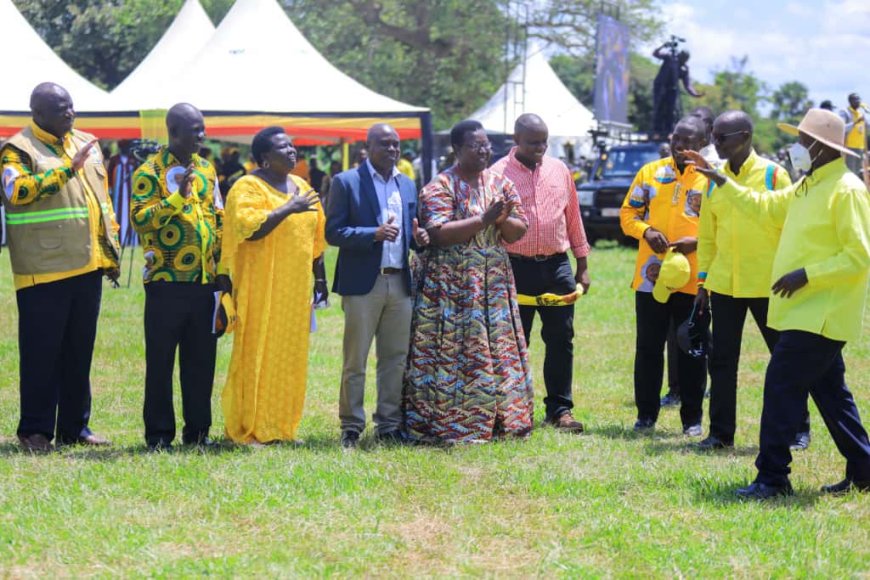
President Museveni’s message in Pader centered on discipline, prioritization, and self-reliance, urging leaders and citizens alike to focus on initiatives that build the nation’s infrastructure and empower households economically.
As the country moves closer to the 2026 general elections, the President’s emphasis on infrastructure and wealth creation reflects his long-term vision of transforming Uganda into a modern, self-sustaining economy driven by productivity, innovation, and social stability.
